9 Things That Could End the World at Any Time
With the end of the world rapidly approaching, it couldn't hurt to look at how it might all go down. Or in the unlikely event the world does not end on May 21, 2011, it's still nice to know there are at least 9 real world-ending things that don't necessarily require divine intervention to end all life as we know it. (Via)
-
1. The Large Hadron Collider

When electric fields are used to accelerate protons they collide at speeds fast enough to create micro black holes or even small pieces of strange matter called strangelets. The micro black holes could slowly engulf our planet while the strangelets would convert any ordinary matter they came in contact with into strange matter, eventually annihilating the entire planet and creating a strange star.
-
2. Rogue Black Holes
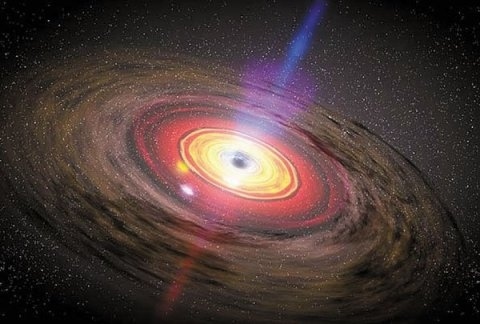
Most black holes are in orbit around other astronomical masses, but if one of these black holes was able to pull itself away from orbit and head towards Earth we would be clueless since they are almost impossible to see. The black hole wouldn't even have to come very close to wreak havoc. Even if it came close to entering our solar system it would distort all planetary orbits causing extreme climate changes, and even expel some planets.
-
3. Gamma-Ray Burst
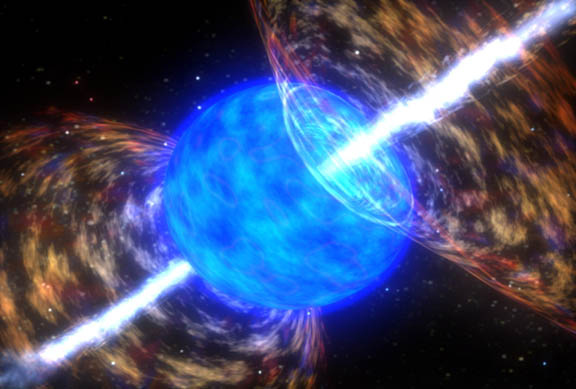
Gamma-ray bursts have 10 quadrillion times more energy than our sun but are created by the highly unlikely collision of two collapsed stars. A burst even 1,000 light years from Earth would create an explosion as bright as our sun and bring about a hasty destruction.
-
4. Omega Point

This term describes the ultimate maximum level of complexity that can exist in the universe. Coined by the French Jesuit Pierre Teilhard de Chardin, theoretically when the Omega Point is reached, the collective consciousness of humankind will be able to reflect upon itself. This divine center of consciousness will draw together the entire universe and end the world as we know it.
-
5. Bubble Nucleation

A leading cosmological model of the universe theorizes that it started as a false vacuum of empty space filled with energy. This incredibly unstable, high-energy state went through the process of bubble nucleation to reach a more stable, lower-energy state. If a bubble of lower energy vacuum were nucleated, it would approach at nearly the speed of light and destroy the Earth instantaneously, without any forewarning.
-
6. Solar Activity

The sun emits solar flares towards Earth frequently. These flares are large magnetic outbursts which contain high-speed subatomic particles. Fortunately, Earth's atmosphere protects us from most of the potential damage. Theoretically the sun could emit so-called 'super-flares'. If our sun were to ever emit one of these 'super-flares' it would literally fry the earth. On the other hand, if our sun's activity were to decrease by a mere 1% (which has happened to many sun-like stars) we would be flung back into another ice age.
-
7. Alien Invasion
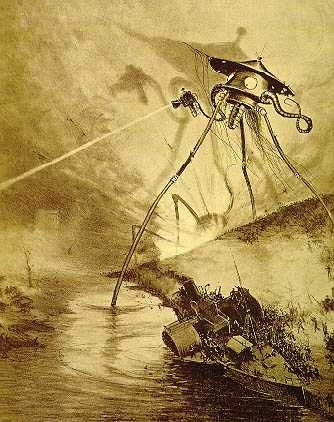
With billions upon billions of planets in the universe and at least more than a few of them habitable it stands to reason that somewhere out there extraterrestrial life exists. And if they don't like us, were toast.
-
8. Global War
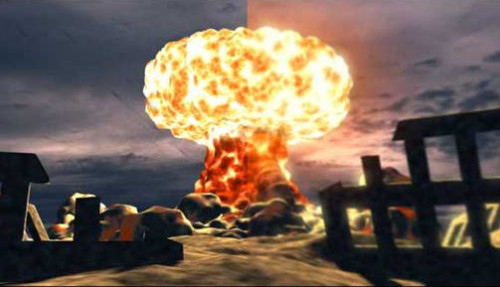
There are at least 8,000 active nuclear weapons in the world today. A malicious or even an accidental nuclear exchange or misfire could be disastrous for the planet. Perhaps even more worrisome could be the treat of biological warfare. Killer germs are cheap, easy to produce and hard to find and can become impossible to control.
-
9. Ecological Collapse
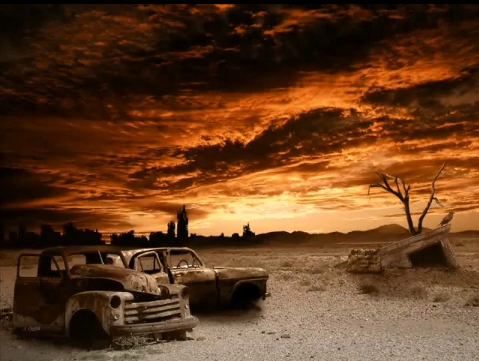
Our biodiversity is vanishing. Tens of thousands of species become extinct each year. We burn forests, slaughter animals and transport organisms from one ecosystem to another without thought, and introduce synthetic materials into the environment. While ecosystems generally have the ability to rebound from disruptions, a catastrophic event like a large asteroid impact or a large volcanic eruption on top of our already fragile ecosystem could permanently end or drastically change life on Earth.
Become a Community Contributor.


